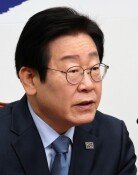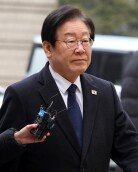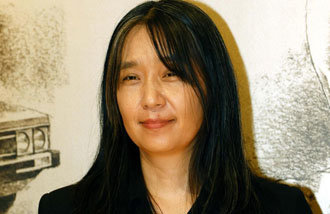Secrets of `three brothers` of South Korea, China, Japan
Secrets of `three brothers` of South Korea, China, Japan
Posted November. 12, 2015 10:15,
You probably do not know that there is the Trilateral Cooperation Secretariat (TCS) in Korea. Although it is rarely known in Japan or China, it is an international organization jointly funded by South Korea, Japan and China and established to promote peace and common prosperity among the three neighbors. Its secretary-general and two deputy secretaries-general are selected alternately among the three countries for a term of two years.
The three countries had complicated relationships. Rarely had the leaders of the three neighbors sat together at one place. However, the establishment of the diplomatic relationship between South Korea and China changed the situation, leading to trilateral summits held on the sidelines of the Association of Southeast Asian Nations (ASEAN) since the late 1990s. The three countries took turns hosting the trilateral summit since 2008, necessitated by the dazzling regional economic development and the need to cooperate among them.
The TCS was born in 2011 in the midst of such an atmosphere. Ironically, it has never taken place since May 2012 due to Japan`s wartime sex slavery issue; South Korean President Lee Myung-bak`s visit to Dokdo, on which Japan lays its territorial claim; escalating confrontation between Japan and China over the Senkaku Islands; and Japanese Prime Minister Shinzo Abe`s controversial visits to the Yasukuni Shrine, which honors Japan`s Class-A World War II criminals.
A new TCS summit took place in Seoul in early November for the first time in three and a half years. The leaders agreed to hold another summit next year. What is important is to regularize the summit at this opportunity. Wouldnt it be important to reaffirm the meaning of the trilateral framework as well as to learn the lessons learned from the past?
Then, what are the identities of South Korea, China and Japan?
In this column written last June, I wrote a fable of "three brothers in a long conflict," referring to the historically complex relationships among the three countries. Wouldn`t such "proximity" be decisive?
There is a fact that directly demonstrates it. Despite slight differences in pronunciations, the three neighbors refer to each other with their official country names. One might think it is natural. However, the rest of the world call the three countries with total different names Korea, China and Japan. I brought up this story at a dinner hosted by the South Korea-China-Japan symposium held in Busan last month. Most of the participants found my argument interesting, agreeing to what I said. With relationship referring to each in their proper names, the three countries can be called "three brothers."
Even when the trilateral summit was suspended for a while, the TCS had organized large-scale international symposiums and other various events. They include a video contest for university students from the three countries and regular, small-scale seminars on various cultural themes. The seminars involve a variety of comparative cultural discussions including one on "Boys over Flowers," Japanese cartoon-based television dramas created in South Korea, China and Japan.
For the last one year, the Japan Center for International Exchange (JCIE) has held a unique series of seminars in Tokyo jointly with the TCS for rediscovering the solidarity among the three neighbors. The forums covered the Joseon Tongsinsa, the goodwill envoys of Korea`s Joseon Dynasty sent to Japan for about 200 years between the 17th and 19th centuries. However, it goes without saying that the existence of Chinese culture was essential in the Korea-Japan exchanges, in which the countries exchanged Chinese-character poems and discussed Confucian theories. People from the three countries can still make simple, written communication with the Chinese characters.
I was surprised to hear that when Beijing University invited members of a Japanese animation club, it had 800 members, who enjoyed cosplaying, a performance art in which participants wear costumes and fashion accessories to represent specific fictional characters in Japanese cartoons. South Korean dramas and pop music is enjoying solid popularity in both China and Japan.
At a banquet for the leaders of Japan and China, South Korean President Park Geun-hye cited a proverb common in the three countries "Ground packs after a rain." But they also have the same expressions describing understanding each other without saying words but with different purposes. While promoting mutual understanding, it is also important to understand the differences.
On this coming Saturday, the TCS and JCIE will jointly hold the "Youth Dialogue" (sponsored by the East Asia Foundation) for communication among students from the three neighboring countries. The themes are all too familiar such as education, jobs, marriage and job-family compatibility. A group of students from Japan will visit Seoul National University for a discussion on "family.": Brothers will fight, possibly ending in a serious family feud. If they cooperate, however, no other relationship could rival such a bond. I hope that the forum will provide an opportunity for the three brothers to realize it.
(Written by Yoshibumi Wakamiya, senior fellow of Japan Center for International Exchange and former chief editor of the Asahi Shimbun)







